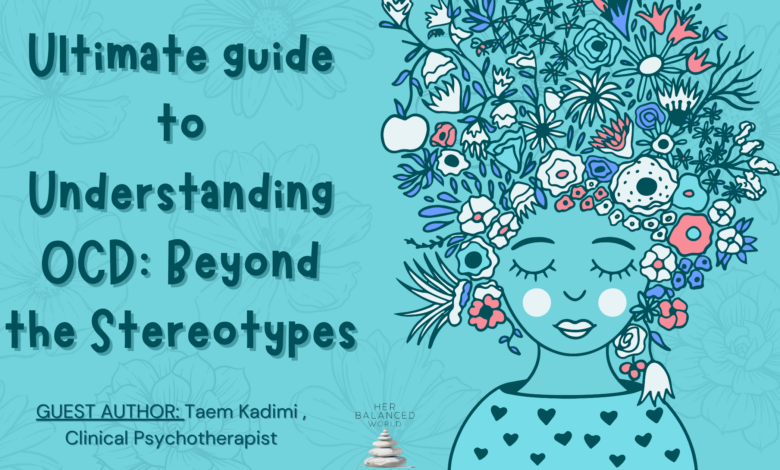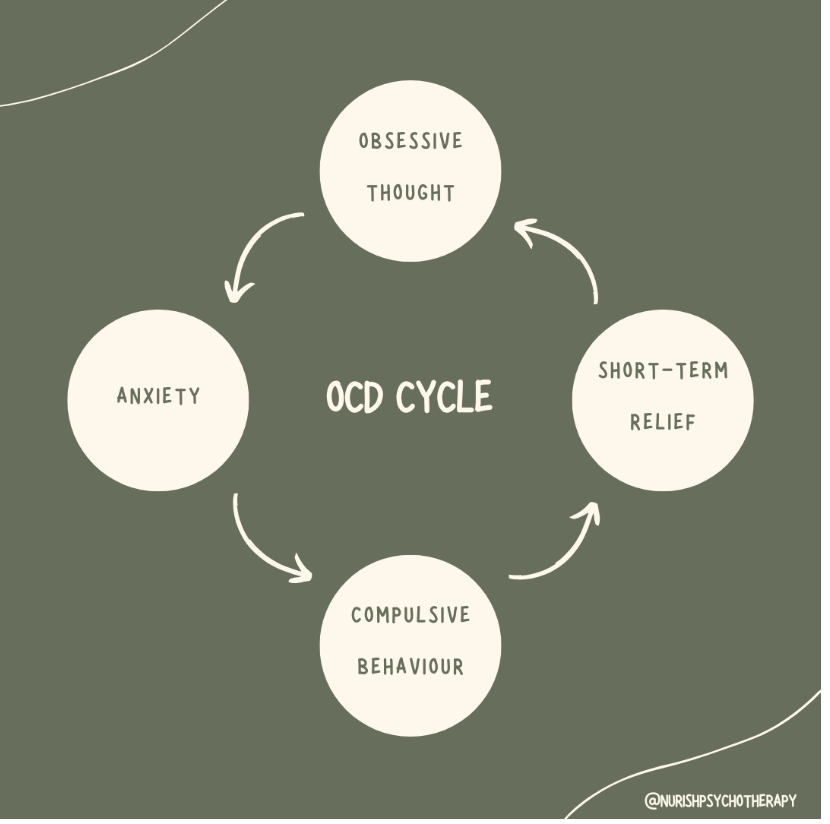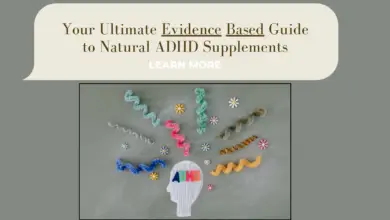Ultimate guide to Understanding OCD: Beyond the Stereotypes

Obsessive-Compulsive Disorder (OCD) is a complex mental health condition that goes far beyond the common stereotypes of excessive cleaning or organization. With insights from Taem Kadimi at Nurish Psychotherapy, we’ll explore the nuanced reality of OCD, helping readers understand its true nature, impact, and paths to management. Living with OCD can be exhausting, especially when intrusive thoughts and compulsions interfere with sleep. Research shows that poor sleep can worsen OCD symptoms, creating a challenging cycle of anxiety and fatigue. Prioritizing good sleep hygiene can help regulate emotions and improve overall mental health. If you’re struggling with sleep, check out 5 Ways to Get Better Sleep (Backed by Science & Research!) for practical, research-backed tips to improve your rest.
Living with OCD can be exhausting, especially when intrusive thoughts and compulsions interfere with sleep. Research shows that poor sleep can worsen OCD symptoms, creating a challenging cycle of anxiety and fatigue. Prioritizing good sleep hygiene can help regulate emotions and improve overall mental health. If you’re struggling with sleep, check out 5 Ways to Get Better Sleep (Backed by Science & Research!) for practical, research-backed tips to improve your rest.
Defining OCD: More Than Meets the Eye
 OCD is characterized by two fundamental components:
OCD is characterized by two fundamental components:
- Obsessions: Persistent, unwanted thoughts that repeatedly intrude into a person’s mind
- Compulsions: Repetitive behaviors or mental acts performed to alleviate the anxiety caused by these obsessions
The Exhausting Cycle of OCD
The disorder follows a distinctive four-stage cycle that creates significant emotional distress:
- Obsessive Thought: Intrusive thoughts trigger intense anxiety
- Anxiety: The obsession creates profound emotional discomfort
- Compulsive Behaviour: Individuals perform actions to reduce their anxiety
- Short-Term Relief: Temporary relief occurs, but the cycle quickly begins again

The Dangerous Trap of Compulsions
Critically, giving in to compulsive behaviors doesn’t solve the underlying problem—it reinforces it. Each time a person performs a compulsive act, their brain learns to associate the ritual with temporary relief, making the OCD cycle more deeply ingrained.
Beyond Stereotypes: The Many Faces of OCD

Contrary to popular belief, OCD manifests in multiple complex forms:
- Contamination OCD
- Extreme fear of germs, dirt, or illness
- Leads to excessive cleaning
- Involves avoiding specific places or situations
- Checking OCD
- Repetitive checking of locks, appliances, or safety measures
- Driven by fears of potential harm or mistakes
- Symmetry and Ordering OCD
- Overwhelming need for objects to be perfectly aligned
- Belief that specific arrangements prevent bad outcomes
- Intrusive Thoughts OCD
- Unwanted, often taboo thoughts causing significant distress
- May involve violent, sexual, or blasphemous content
- Causes extreme psychological discomfort
- Hoarding OCD
- Extreme difficulty discarding items
- Driven by a perceived need to save things
- Often results in cluttered living spaces
- Pure O (Primarily Obsessional) OCD
- Characterized by mental compulsions
- Involves mental reviewing or seeking reassurance
- Lacks visible physical rituals
Evidence-Based Treatment: A Path to Management

Therapeutic Approaches
- Cognitive Behavioral Therapy (CBT)
- Exposure and Response Prevention (ERP)
Medication Options
- Selective Serotonin Reuptake Inhibitors (SSRIs)
Frequently Asked Questions

Q: Is OCD rare?
A: No, OCD is a common mental health condition that affects a significant portion of the population.
Q: Can OCD be cured?
A: While there’s no definitive “cure,” OCD can be effectively managed with professional support and appropriate treatment.
Q: Do people with OCD realize their thoughts are irrational?
A: Often, yes. This awareness can actually increase their anxiety and distress.
Q. Are OCD and ADHD related?
A: Obsessive-Compulsive Disorder (OCD) and Attention-Deficit/Hyperactivity Disorder (ADHD) are distinct neuropsychiatric conditions that can co-occur. Research indicates that up to 30% of children and adolescents with OCD also exhibit ADHD symptoms, suggesting a notable comorbidity between the two disorders
Q: Can OCD be cured?
A: According to groundbreaking research by NIH, OCD is not an incurable condition, but a treatable mental health challenge that responds effectively to targeted interventions like Cognitive Behavioral Therapy (CBT) and medication. While complete “cure” might be complex, modern treatment strategies can help individuals achieve significant symptom reduction, develop robust coping mechanisms, and substantially improve their quality of life.
Q: Why OCD happens?
A: OCD happens because of a mix of genetics, brain differences, and life experiences. Scientists believe that certain brain circuits don’t work properly, and things like family history, stress, or even infections can increase the chances of developing OCD. (PMC, Nature)
A Message of Hope
 Understanding OCD is the first crucial step toward effective management. With professional support, individuals can learn to break the cycle and regain control over their lives.
Understanding OCD is the first crucial step toward effective management. With professional support, individuals can learn to break the cycle and regain control over their lives.
Connect with The Expert
 Seeking help is a sign of strength. If you or someone you know is struggling with OCD, reach out to:
Seeking help is a sign of strength. If you or someone you know is struggling with OCD, reach out to:
Nurish Psychotherapy
- Website: https://nurishpsychotherapy.com
- Instagram: @nurishpsychotherapy
- Tiktok: @nurishpsychotherapy
- Facebook: https://www.facebook.com/profile.php?id=61566581430579
Remember, OCD is a manageable condition. With the right support, understanding, and treatment, individuals can develop strategies to navigate their challenges and lead fulfilling lives.






I don’t think the title of your article matches the content lol. Just kidding, mainly because I had some doubts after reading the article.
Haha, I appreciate the feedback! I’d love to hear more about what doubts you had—was there anything that didn’t quite add up or that you’d like more clarification on? Always happy to dive deeper!